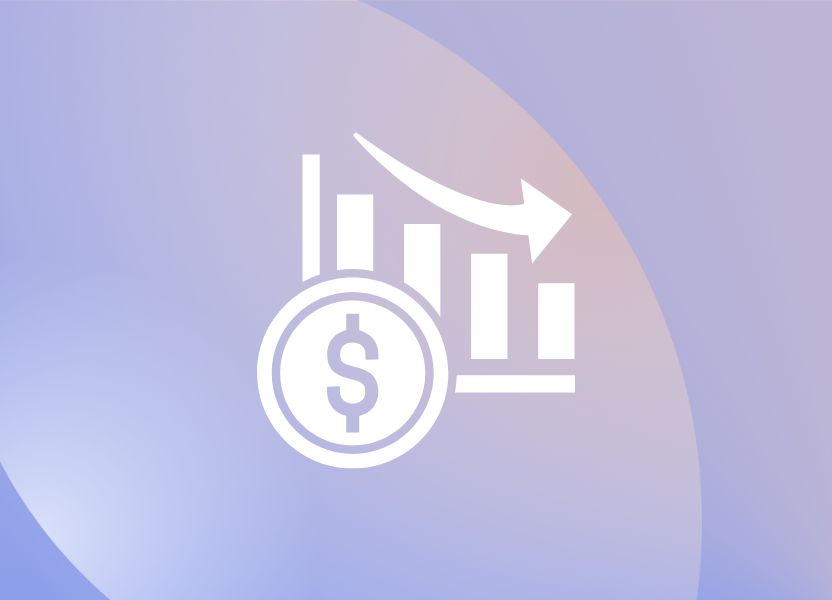In Pascuense, the language spoken on Easter Island, the word “tingo” refers to the act of gradually borrowing items from a friend’s house until, one by one, there’s nothing left. It is a delightful custom which, coincidentally, provides an alternative explanation for the loss of trees on the island.
In modern times the practice of tingo has extended beyond the rustic confines of Easter Island and is mostly undertaken by the corporation. The Nasdaq-listed Tingo Group Inc. (TIO) illustrates a modern expression of the practice.
This African agri-fintech company attracted unwanted attention from short sellers and US regulators after its co-chairman found himself unable to sign off on one of the company’s annual financials and promptly resigned.
Tingo last week filed to delist its shares from the Nasdaq. All these dealings prompted us to run our accounting manipulation detector over the company’s financial statements and see what was under the hood.
The results, predictably, are not great. Read on for more.
What is the Tingo Group
Tingo was founded in 2001 in Nigeria by tech entrepreneur “Dozy” Mmobuosi, who served as the CEO until December, 2023. He also served as Chairman from inception until September 2021, when Christophe Charlier from Renaissance Capital was appointed co-Chairman.
Mmobuosi gained international attention during 2022 when he attempted to buy Sheffield United Football Club. He graced the cover of GQ Africa in December of the same year.

According to its website, Tingo Group “is the leading Agri-Fintech company operating in Africa.” The company says it offers app-based services to 32 million farmers world-wide with a ‘seed-to-sale’ marketplace platform, insurance, micro-finance, and mobile phone services.
The company also claims other verticals including: food processing, commodity trading, a payment services business in partnership with Visa, and an insurance brokerage business extending across 130 cities in China. Topping the cake, is a regulated finance services business operating out of Hong Kong and Singapore.
The company first went public in August 2021 on the US OTC market through a reverse merger with a Thai company that originally intended to acquire a third-tier crypto exchange. In December 2022, the company entered the Nasdaq via another reverse merger with a listed Chinese fintech company. The company was renamed Tingo Group Inc and the ticker changed from MICT to TIO on February 27, 2023.
Tingo’s valuation peaked at approximately US$3 billion in May 2023.
Shortly before this peak valuation, in April 2023, Christophe Charlier suddenly and unexpectedly resigned as co-chairman. In a letter addressed to Dozy and filed with the SEC, Charlier noted that “many critical questions, comments and recommendations” sent to management and the Board in relation to governance “remained unanswered and unheeded”. As a result, Charlier found himself unable to approve the 10K form for 2022 and found it necessary to resign from the board.
What Hindenburg Research says about Tingo Group
Charlier’s letter piqued the interest of the infamous short-seller, Hindenburg Research.
On June 6, 2023, Hindenburg published a report entitled, “Tingo Group: Fake Farmers, Phones and Financials - The Nigerian Empire That Isn’t.” The report delivered a long list of allegations against the Tingo Group and its founder. The report makes excellent light reading.
Tingo categorically refuted all the allegations of the report, saying it was full of "misleading and libellous content". The company also said it had hired a law firm to conduct an independent review of Hindenburg's claims.
What the SEC says about Tingo Group
Charlier’s letter also attracted the attention of the SEC.
On December 18, 2023, the SEC filed the following charges against Tingo Group Inc and its founder:
- Violating the anti-fraud provisions of the federal securities laws by fabricating financial statements, bank balances, customer relationships, and business operations of Tingo Group and its subsidiaries;
- Violating the reporting, books and records, and internal controls provisions of the federal securities laws by making false and misleading statements in press releases, periodic SEC filings, and other public statements;
- Lying to auditors, insider trading, and failing to disclose the sales of millions of Agri-Fintech common stock for which Mmobuosi was the ultimate beneficial owner.
The SEC also alleged that Mmobuosi siphoned funds for his personal benefit, including purchases of luxury cars, travel on private jets, and his unsuccessful attempt to acquire Sheffield United.
The SEC sought emergency relief to prevent further harm to investors and to protect corporate and investor assets.
As an example, the SEC filing alleged: “Tingo Group’s fiscal year 2022 Form 10-K filed in March 2023 reported a cash and cash equivalent balance of $461.7 million in its subsidiary Tingo Mobile’s Nigerian bank accounts. In reality, those same bank accounts allegedly had a combined balance of less than $50 as of the end of fiscal year 2022.” The SEC alleged that Tingo fabricated customer relationships.
What Transparently.AI's risk engine says about Tingo Group
The Transparently.AI risk engine gave Tingo Group Inc. manipulation risk scores of 88%, 89% and 90% in 2020, 2021 and 2022, respectively.
These scores suggested that Tingo was in the 98th risk percentile among all North American listed companies in 2020 and 2021 and in the 100th risk percentile for manipulation risk in 2022.
In essence, the AI system suggested that Tingo Group exhibited exceptionally poor risk characteristics and warranted extreme caution. Figure 1 provides an excerpt of the overview from the 2022 risk report.
Figure 1: An excerpt of Tingo’s risk assessment for 2022

Source: Transparently.AI
Unusually, Tingo raised red flags in every single risk cluster with the sole exception of working capital signals. Even Enron struggled to register red flags in more than half the risk categories in its worst years of fraud. To be sure, if the SEC allegation about Tingo’s true cash position proves correct, the cash quality and working capital situation will have been much worse than the AI system was able to assess.
The system mostly found issue with Tingo because its numbers were simply too good for the types of business it was supposedly engaged in: Growth was absurdly high, margins were unrealistic, the normal relationships between sales, inventories and cash flow was absent.
On top of this, the company triggered numerous risk warnings for corporate governance and business manipulation. There were, for example, signals of excessive business interaction with affiliates, too much non-operating income, too much restatement of its accounts, and too much options issuance.
The FBI is still investigating the Tingo Group and its founder, who mysteriously vanished from his luxurious Eccleston Square, London, townhouse after the SEC filed charges.
Mmobuosi has called the SEC’s allegations “baseless” and said he “will contest them with unwavering resolve." Tingo has said it will “fully cooperate” with the regulator.
We await the outcome with much interest.













